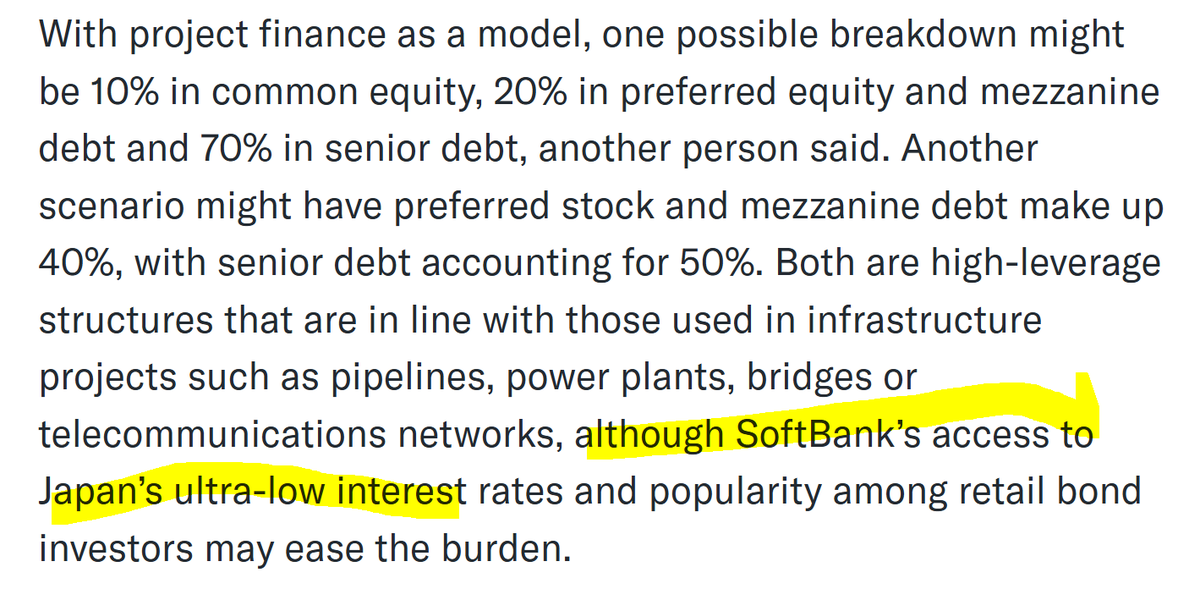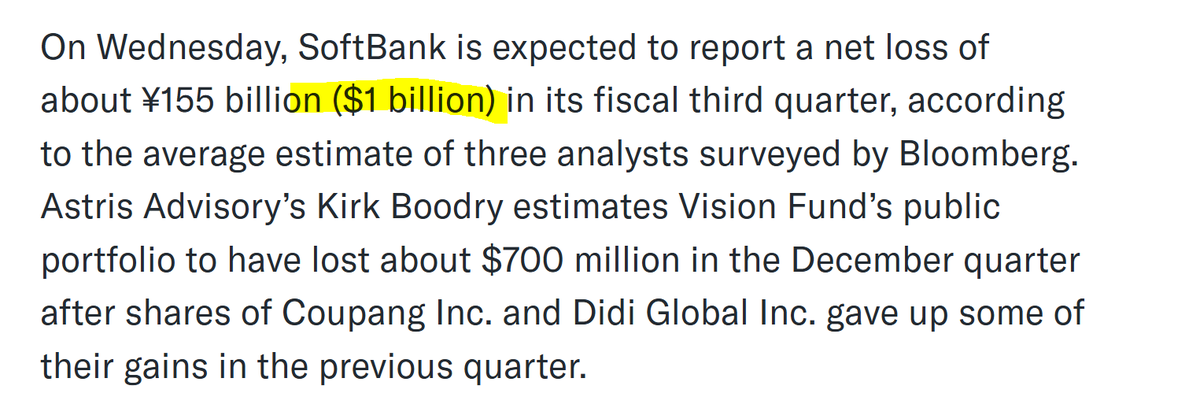Today’s thread is on the strangest figure of 1960s tech counterculture. A friend of McLuhan, Bateson & Glenn Gould. Someone who went from being a CIA-adjacent psychiatrist to a hippie guru to a manual worker in an iron foundry to a Maoist instructor of Chinese engineers.








Meet Warren Brodey (b. 1924), the star of A SENSE OF REBELLION. Someone with huge but unknown impact on digital culture (MIT's Negroponte lists him as one of his most important early mentors). Someone who, in his hippie phase, would climb trees - pantless (see end of this clip!)
In 60s/early 70s Brodey coined many interesting concepts - from "soft architecture" to "intelligent environments" (he also characterized bureacracy and capitalism as "Mechy Max" systems dubbing his own ecological counterculture "bioptemes"). Pics are from his 74 book, Earthchild








Unlike the rest of the tech community that preached "human augmentation" - making smarter computers to boost total productivity of man-machine systems - Brodey believed in the idea of "human enhancement": using computers to make humans smarter & able to perceive in richer ways. 
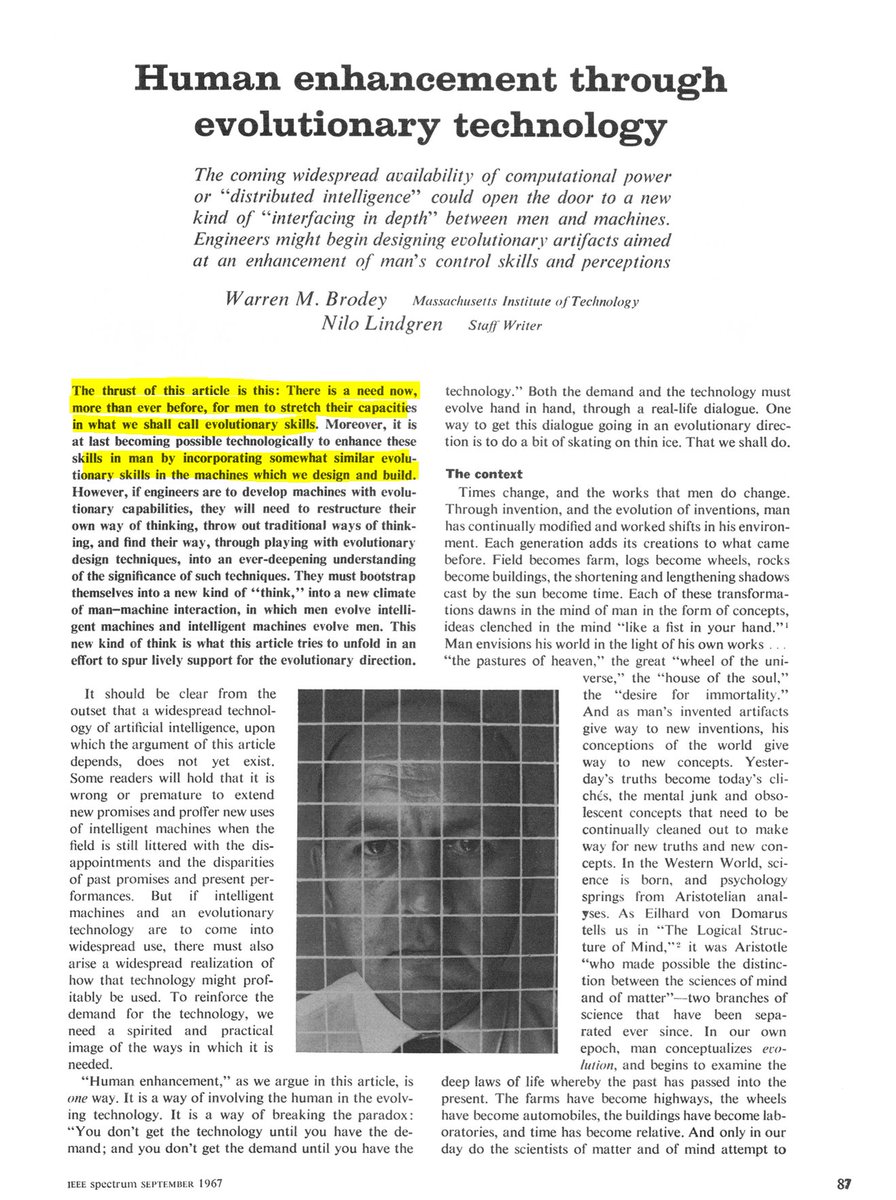
Brodey hated Buckminster Fuller and loved Antonio Gaudí. He wanted our digital culture to be more like the latter and less like the former. In mid-1960s, he was already demanding response-able ("smart") gadgets to fight alienation. He is an intellectual godfather of interactivity







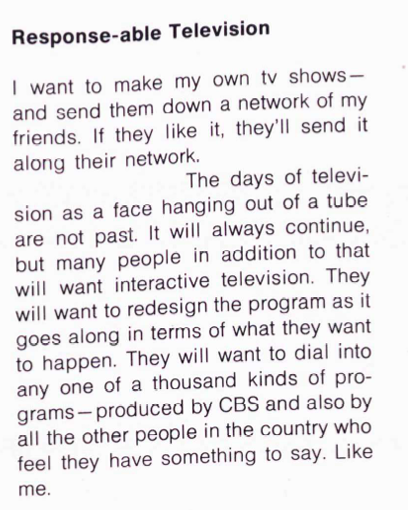
Together with Avery Johnson, Peter Oser, and a few others, he tried to build such "response-able" and "ecological" technologies in his Environmental Ecology Lab (67-69) and then Ecology Tool & Toy (69-73). These were wildly experimental ventures - hippie startups of sorts.




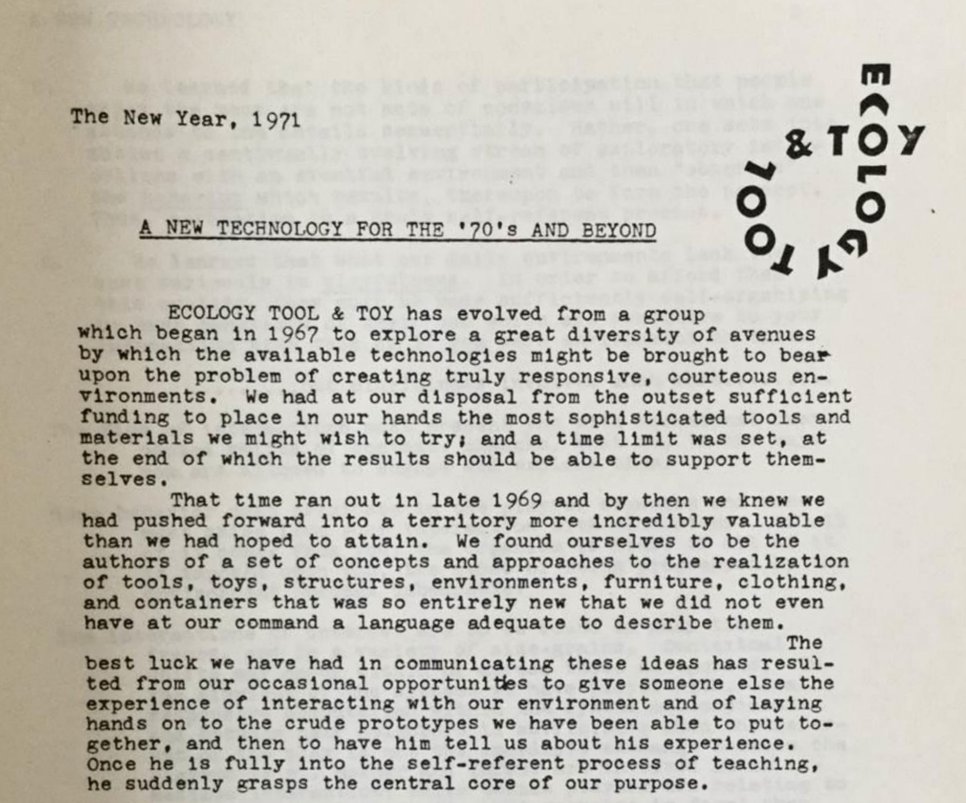



Eventually, Brodey got radicalized and turned to politics. By late 1973, he was engrossed in reading Lenin, Marx, and Mao and was rubbing shoulders with members of the Workers' Communist Party (AKP) in Norway. That's when he rethought US tech counterculture along Marxist lines.






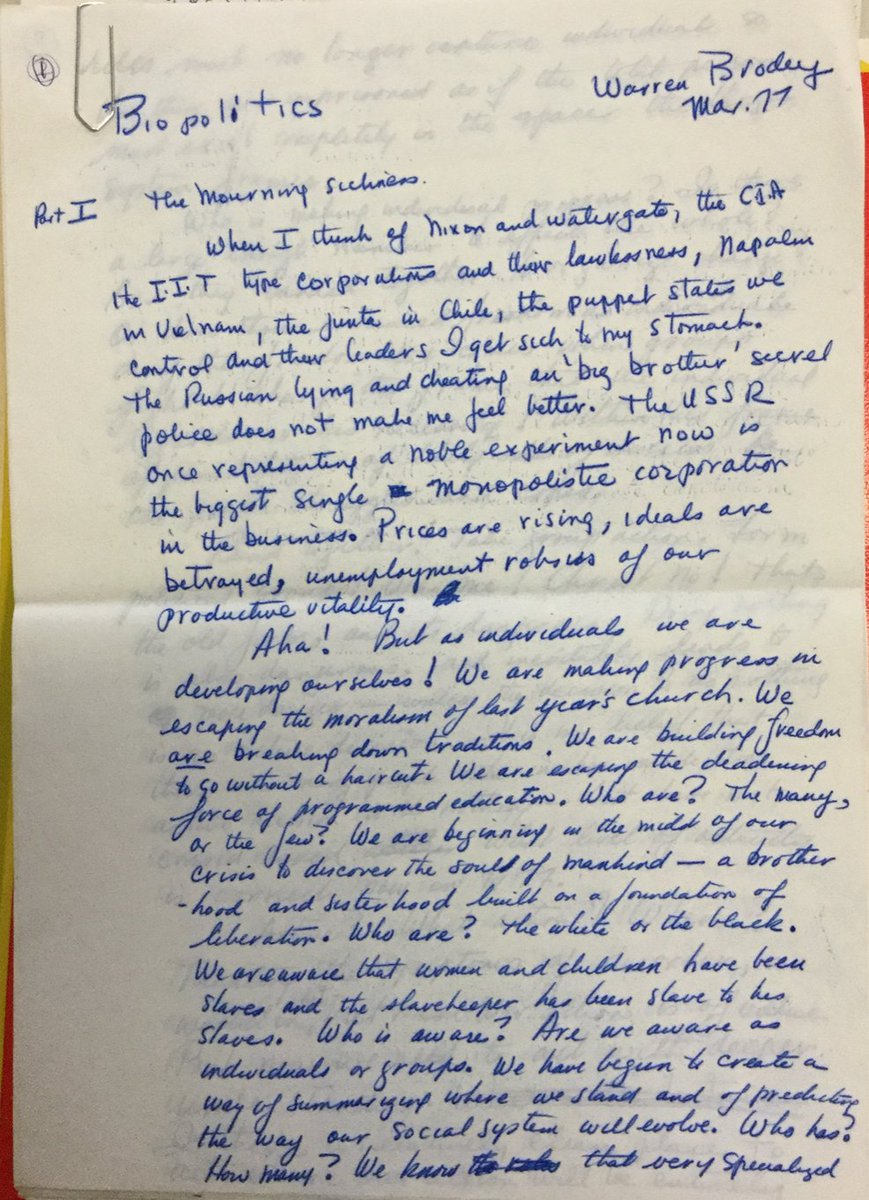
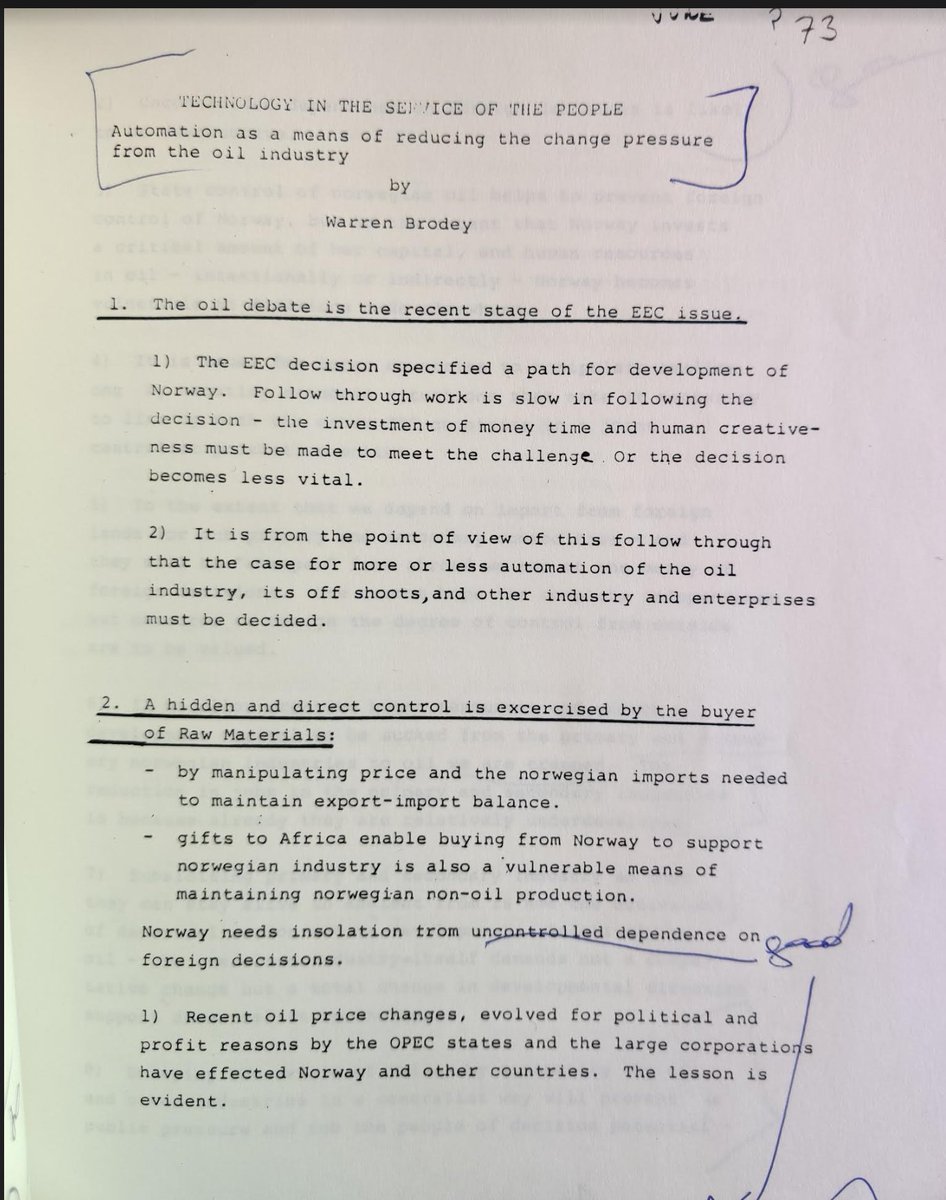
For more on Brodey, check out my podcast A SENSE OF REBELLION. For my threads on Johnson and Oser, Brodey's collaborators in the lab, see my earlier threads (Oser: and Johnson: )sense-of-rebellion.com
https://x.com/evgenymorozov/status/1802719094937932196
https://x.com/evgenymorozov/status/1802719105872515208
• • •
Missing some Tweet in this thread? You can try to
force a refresh


